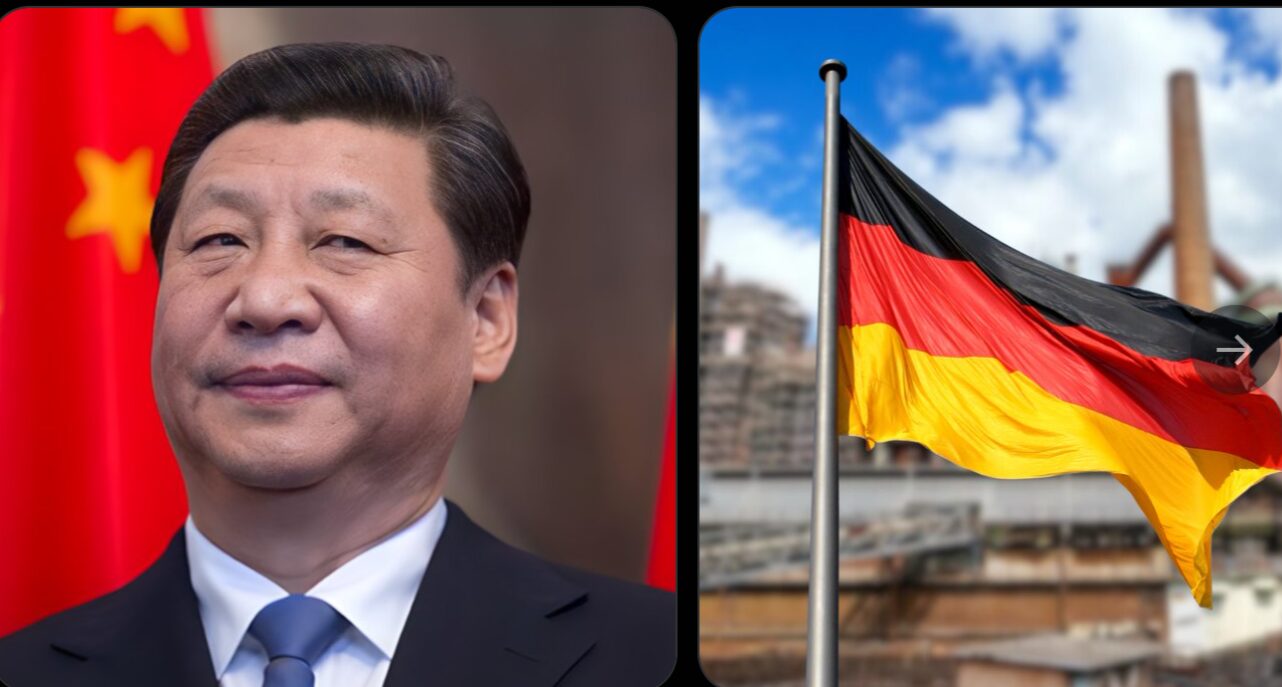CHINA is interested in buying crisis-stricken GERMAN car factories, especially Volkswagen
In recent weeks, there has been growing speculation about China’s interest in acquiring struggling German car factories, with a particular focus on the automotive giant Volkswagen. The German automotive industry, long considered one of the world’s most successful, is facing multiple challenges, including production delays, supply chain disruptions, and an ongoing shift toward electric vehicles. Amid these difficulties, China has emerged as a potential buyer, raising concerns and questions about the future of Germany’s car manufacturing sector and its relationship with the Chinese government. This development reflects not only the economic pressures facing the German automotive industry but also the broader geopolitical and economic dynamics between China and Europe.
Why Are Chinese Companies Interested in German Car Manufacturers?
The global automotive market has been undergoing significant changes, with the transition from combustion engine vehicles to electric cars becoming increasingly urgent. German manufacturers, including Volkswagen, BMW, and Mercedes-Benz, have been at the forefront of this shift but have faced major challenges in adapting to new technologies, stricter environmental regulations, and global supply chain issues. As a result, many of these companies are struggling to maintain profitability in a highly competitive market.
China, the world’s largest car market and a leader in electric vehicle production, sees a strategic opportunity to invest in the German automotive sector. The country has made significant strides in the development and production of electric vehicles, and acquiring struggling German car manufacturers could provide Chinese companies with access to advanced automotive technology, expertise in high-quality manufacturing, and a well-established brand presence in international markets.
For China, buying German car factories could also be a way to enhance its global influence in the automotive industry, particularly in Europe. German carmakers have long been seen as symbols of engineering excellence, and the prospect of Chinese ownership could further strengthen China’s position in the global market, especially as demand for electric vehicles rises.
Volkswagen: The Prime Target
Among the German carmakers, Volkswagen has been identified as the prime target for Chinese investment or acquisition. As one of the world’s largest and most influential automotive brands, Volkswagen’s struggles in recent years have been significant. The company has faced numerous challenges, from the fallout of the Dieselgate scandal to issues with supply chain disruptions and delays in the rollout of electric vehicles. Volkswagen’s ambitious plan to transition to electric cars has been met with challenges, including stiff competition from both traditional and new entrants to the market, such as Tesla.
The automotive giant’s situation has left it vulnerable to external investment, particularly as it looks to secure funding for its ambitious electrification goals. Chinese companies are well-positioned to take advantage of this, offering financial resources and the potential to drive growth through strategic partnerships. The fact that Volkswagen has made significant strides in electric vehicle technology could be particularly appealing to Chinese investors, who are eager to expand their footprint in the electric vehicle market.
China’s interest in Volkswagen is not entirely new. Over the years, Chinese companies have formed various partnerships with Volkswagen to manufacture cars for the Chinese market. A more significant acquisition, however, could provide China with greater control over Volkswagen’s technologies and its production capabilities. In a world increasingly focused on sustainability and innovation, controlling a major player like Volkswagen could offer China significant advantages in the automotive industry.
Geopolitical Implications of Chinese Acquisition of German Car Factories
The possibility of Chinese ownership of major German car manufacturers has raised significant geopolitical concerns, particularly in the context of the European Union’s complex relationship with China. The EU has been increasingly wary of China’s growing influence in Europe, particularly in sectors such as technology, infrastructure, and energy. The idea of China gaining control over a key pillar of the European economy, such as the German automotive industry, is seen by some as a strategic maneuver to exert more influence over Europe’s economic future.
For Germany, the potential sale of its iconic car factories to Chinese companies raises questions about national sovereignty and economic independence. The German government has historically been protective of its automotive sector, which is not only a major contributor to the national economy but also a symbol of the country’s industrial prowess. As such, any move to sell these companies to foreign investors, especially Chinese firms with close ties to the Chinese government, could spark intense debate within Germany and beyond.
The EU is likely to closely scrutinize any such deal to ensure that it does not undermine Europe’s economic interests. European leaders are already concerned about the growing presence of Chinese firms in critical sectors, including telecommunications and energy, and may view the acquisition of German car factories as another step in China’s broader strategy to assert its dominance on the global stage.
Economic Benefits for China and Germany
From an economic perspective, the potential acquisition of German car factories by Chinese companies could bring mutual benefits, though they may not be equally distributed. For China, investing in Germany’s automotive sector offers access to advanced technologies, a strong brand presence, and the opportunity to expand its market share in Europe and beyond. Chinese firms, such as Geely and BYD, have already made moves to acquire stakes in international car manufacturers, and owning part of a major German company like Volkswagen would further strengthen their global standing.
For Germany, the investment could provide much-needed financial support as the automotive industry grapples with the challenges of electrification and the shift away from traditional internal combustion engines. Chinese investors, with their deep pockets and extensive experience in electric vehicle production, could help Germany accelerate its transition to sustainable mobility and keep pace with the rapidly changing global market. Additionally, such an acquisition could help safeguard jobs in the automotive sector, which has been under pressure due to automation and restructuring.
However, these benefits come with significant risks, particularly in terms of national security and economic control. German policymakers will need to carefully assess whether the long-term economic gains outweigh the potential loss of control over a critical industry. The implications for job security, intellectual property, and national security must be considered before any major deals are made.
The Future of the German Automotive Industry
The German automotive industry stands at a crossroads, with traditional manufacturers like Volkswagen facing significant challenges in adapting to the rapidly evolving automotive landscape. As China looks to expand its footprint in the industry, both through strategic investments and technological advancements, the future of the German automotive sector will depend largely on how it navigates these pressures.
The prospect of Chinese companies acquiring German car factories, particularly Volkswagen, underscores the growing interdependence between the two countries in the automotive and technology sectors. While such acquisitions could lead to greater collaboration and technological innovation, they also raise questions about the balance of power and the role of national governments in protecting critical industries.
In the coming years, the fate of German car manufacturers will likely be shaped by a complex interplay of economic, political, and technological factors. As China continues to expand its influence in the global automotive market, it will be crucial for Germany to strike a delicate balance between maintaining control over its industrial base and embracing the opportunities that international partnerships and investments can bring.
Conclusion
China’s interest in acquiring crisis-stricken German car factories, with a particular focus on Volkswagen, highlights the shifting dynamics of the global automotive industry. As the sector grapples with the challenges of electrification and globalization, Chinese companies see an opportunity to expand their reach and technological capabilities. For Germany, the potential sale of its iconic car manufacturers raises significant geopolitical and economic questions. While there may be benefits to such deals, the risks are equally substantial, and careful consideration will be needed to ensure that Germany’s economic sovereignty is not compromised. The coming years will reveal how these complex dynamics unfold and shape the future of the global automotive market.

















Post Comment